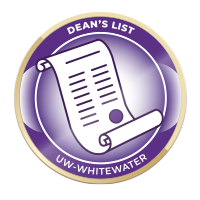The College of Business and Economics is the largest AACSB-accredited business school in Wisconsin. Offering bachelor’s, master’s and doctorate programs, the college prepares students for their first career positions, executive leadership or careers in academia. The college’s reputation for excellence is founded on exceptional student experiences, and it delivers relevant and rigorous curriculum that is conveyed through innovative and effective teaching.
We invite you to join a rich tradition of excellence extending back to 1913 when the university first offered business education classes — then known as commercial education — and 1964 when campus reorganization created the School of Business and Economics.
Today's high-quality curriculum and faculty have been developed on the framework of accreditation by the Association to Advance Collegiate Schools of Business. AACSB accreditation is a mark of quality acknowledged by employers and other higher education institutions, and it drives continuous improvement. Meeting the rigorous standards set forth by AACSB also ensures that the college has the facility, faculty, and technology resources to deliver academic programs successfully.
The college first earned AACSB accreditation for business in 1974, placing it among only five percent of business schools in the world to claim this credential. In 2021, the college achieved supplemental accounting accreditation. Less than two percent of business schools in the world hold dual accreditation in business and accounting from AACSB.
Among other recent milestones, the college first began delivering online education in 1998, and its Master of Business Administration is consistently ranked among the best online MBA programs in the nation by U.S. News & World Report. The online Bachelor of Business Administration is growing in acclaim and can now be completed with one of several majors.
In addition, the university’s first doctorate of business administration degrees were conferred in 2017. UW-Whitewater is home to one of the few AACSB-accredited DBA programs in the nation, and it is the only university in the state of Wisconsin approved to offer this applied business degree.







